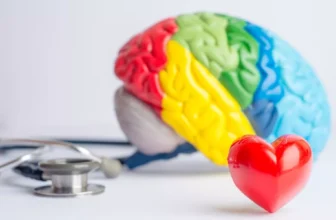
When considering the benefits of therapy for mental health, you might be surprised by the profound impact it can have on various aspects of your well-being. From gaining a deeper understanding of yourself to developing healthier ways of coping with stress, therapy offers a transformative journey towards personal growth and resilience. But what other advantages does therapy hold for your mental health? Explore further to uncover the full spectrum of benefits waiting to be discovered.
Enhanced Self-Awareness
Therapy can help you develop a deeper understanding of yourself and your emotions, leading to enhanced self-awareness. By exploring your thoughts and feelings in a safe and supportive environment, you can gain insight into the underlying causes of your behaviors and patterns. Through guided discussions and reflections, you may uncover past experiences or traumas that have shaped your current mental landscape.
This increased self-awareness can empower you to make positive changes in your life. Recognizing your triggers and understanding how past events influence your present reactions can help you navigate challenges more effectively. With a heightened awareness of your emotions and thought processes, you can learn to respond to situations in ways that align with your values and goals.
Moreover, enhanced self-awareness can improve your relationships with others. By understanding your own needs and boundaries, you can communicate more clearly and establish healthier connections. Therapy provides a space for self-exploration and growth, guiding you towards a more authentic and fulfilling life.
Improved Coping Mechanisms
Developing enhanced self-awareness through therapy can pave the way for improved coping mechanisms in handling life's challenges. By delving into your thoughts, emotions, and behaviors with a therapist, you gain a deeper understanding of yourself and your triggers. This heightened self-awareness allows you to recognize when you're beginning to feel overwhelmed or distressed, empowering you to implement effective coping strategies before things escalate.
Therapy equips you with a toolbox of coping mechanisms tailored to your specific needs and circumstances. You may learn techniques such as mindfulness, deep breathing exercises, or cognitive reframing to manage stress, anxiety, or difficult emotions. Through regular therapy sessions, you can practice and refine these coping skills, making them more accessible and automatic in times of need.
As you become more adept at utilizing these coping mechanisms, you may find yourself better equipped to navigate life's challenges with resilience and grace. Rather than feeling helpless or overwhelmed, you can face adversity with a sense of agency and confidence, knowing that you have the tools to cope effectively.
Strengthened Emotional Resilience
Enhancing emotional resilience through therapy involves building inner strength to bounce back from setbacks and challenges. Therapy provides a safe space for you to explore your emotions, understand your reactions, and develop healthier coping strategies. By working with a therapist, you can learn how to regulate your emotions, manage stress more effectively, and cultivate a positive mindset.
Therapy helps you identify and challenge negative thought patterns that may be contributing to feelings of hopelessness or helplessness. Through techniques like cognitive behavioral therapy, you can reframe your thinking and develop a more resilient outlook on life. Building emotional resilience also involves practicing self-care, setting boundaries, and engaging in activities that bring you joy and fulfillment.
Developing emotional resilience doesn't mean avoiding difficult emotions or situations; rather, it means facing them head-on with courage and compassion. Therapy equips you with the tools to navigate life's challenges with greater ease and confidence, ultimately leading to a more balanced and resilient emotional state.
Better Interpersonal Relationships
Improving your communication skills can lead to more fulfilling and harmonious relationships with others. Therapy can help you develop better ways to express your thoughts, feelings, and needs, which in turn can enhance your interactions with friends, family, and colleagues. By learning how to communicate effectively, you can avoid misunderstandings, resolve conflicts more constructively, and build stronger connections with those around you.
Therapy provides a safe space to explore your communication style, identify areas for improvement, and practice new techniques. Through role-playing and feedback, you can gain valuable insights into how your words and actions impact your relationships. As you become more aware of your communication patterns and learn to communicate more assertively yet empathetically, you'll likely notice positive changes in how you relate to others.




